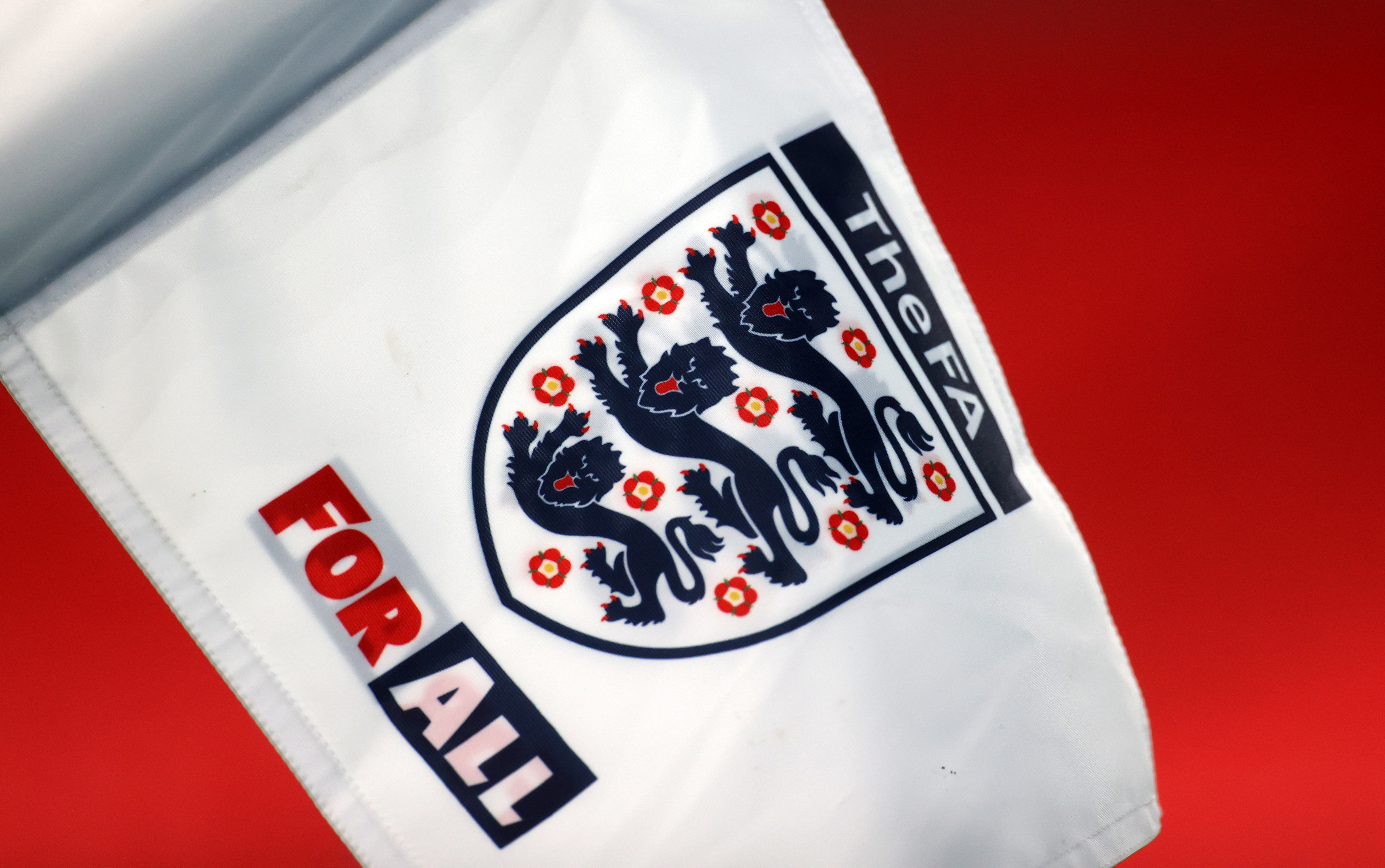Emma Brown excited for future of England disability football

England Deaf Women winger Emma Brown says football has taken her on an “amazing” journey so far and is excited about what lies ahead – and for those who will follow in her footsteps.
The 29-year-old had her first contact with the England set-up via a trial in 2009 after joining Manchester United’s under-16s.
Brown has gone on to represent her country at European and World Championships and Great Britain at the Deaflympics, claiming bronze medals in all three.
First camp of the year completed. It’s always an honour to wear the three lions kit, surrounded by class players and coaches. 🦁🏴💪🏻 pic.twitter.com/f3o4iYH1G8— emma brown (@Emmabrown15Emma) February 6, 2022
The England team, most recently training at St George’s Park earlier this month, are set for a first-ever overseas camp in Portugal in May as preparations continue ahead of next year’s World Championships in South Korea.
Brown, who was born deaf and had hearing aids from the age of three months, told the PA news agency: “I’ve always had passion for football since I was tiny. When I was at primary school I was the only girl who wanted to play football with the lads – they didn’t have any girls’ team. I didn’t care, I just enjoyed football.
“I didn’t join a club until I was 14, 15. Manchester United Foundation came to my school, I found out they had United trials, went for it and was successful.
“That’s when I first found out about England Deaf Women. United had a disability coach that was talking about it, and I went for my first England trial.
Get FourFourTwo Newsletter
The best features, fun and footballing quizzes, straight to your inbox every week.
“For me, going to that trial was completely different – at United we would all speak, and all of a sudden I see everyone signing. For me it was a completely different world, and I was nervous because I didn’t really fully know sign language then.
“But I remember getting my letter saying I was picked for camp, and that was like a dream come true, wearing the Three Lions shirt.”
Brown, who has played Futsal for England as well as 11-a-side, says football has “massively built my confidence as a person”, and added: “With England, it’s just an amazing opportunity.
“You get to travel around the world. I’ve got to know so many deaf people, not just in England but all over the world. It’s been amazing to gain that friendship with different people, and to learn sign language and things like that.
“South Korea next year will be amazing. It’s a country I’ve not been to as well, so I can scratch it off! Of course, winning it would be an absolute dream.”
Last October the Football Association, which in 2019 decided to redirect funding for deaf Futsal to prioritise the 11-a-side format, announced a new three-year plan designed to help develop, improve and raise awareness of disability football in England.
I’m Proud of what I have achieved so far, I’m hungry to achieve more 💪🏻💪🏻🏴🇬🇧 #proud#passion#england#GB#Englandcapspic.twitter.com/IPFc7cU8zG— emma brown (@Emmabrown15Emma) March 14, 2022
Brown says that while there was some disappointment among players with regard to the Futsal decision, they “understood the reasoning behind it”, and in terms of the bigger picture said: “What the FA is doing for para football is absolutely brilliant.
“It’s good that they’re spreading awareness, and the FA has set up the talent pathway where they start at a very young age.
“Things have changed massively. We’ve got a lot of young players coming in and they’re telling me what they did in the talent pathway, the support they had.
“I want to keep going until I can’t go any more – but I am excited for the young ones, because they’ll have such amazing experience and support. The support we have now – for example psychology, filming of training – is just amazing, and I can see it’s becoming even more stuff.
“In May it will be the first time ever we have a camp abroad, so again, I’m excited for that. I cannot wait for the future and with the plan the FA has, I’m excited for the young ones.”
Football Your Way. ⚽️— The FA (@FA) October 14, 2021
Edleen John, the FA’s director of international relations, corporate affairs and co-partner for equality, diversity and inclusion, said of the ‘Football Your Way’ plan: “We’ve strived to look at where there are gaps in the system, where we can improve, and develop a plan that we can evolve in the longer term.
“It starts with the commitment of looking at our own organisation and recognising there are areas where we can improve from a disability standpoint in terms of representation and inclusion, but then focuses on what we can do from a growing participation perspective, looks at recreational football, competitions…right up to the elite end, how we best support players, making sure we raise the profile of the game at every level.
“It’s a starting plan that really highlights for us our commitment to making sure we’re growing disability football across the country. It’s important, it’s vital and it’s something we look forward to seeing develop and grow.”
